Can we Engineer the Future?
Jon Rogers
What a ridiculously lovely notion – to engineer our future. As a young engineer I was given the task of controlling the level of water in a water tank that was continually being topped up. I had to understand both the rate of flow of current change, the amount of water stored and the history of change. Water, a simple molecule made of two basic elements, in a square predictable tank with a simple valve to release it. And I struggled. It was a fantastic way of teaching me about calculus in action. To engineer our future, we need to be able to predict it, to create feedback loops to the past and to design processes that interact between the past and the future to create useful and meaningful outputs. A tad more difficult than controlling the level of water in a tank. And while Newtonian mechanics were able to come to hand, I’m fairly sure we’re entering the realms of science fiction when we start to think we can Engineer The Future.
Isn’t it the history of science fiction that we turn to in order to say just how well we can imagine possible viable futures. Aren’t we living in Gibson’s Neuromancer? Wasn’t the wonderful voyage of Tim Peake predicted by Arthur C Clarke? And didn’t I just skype colleagues on the other side of the planet in a world imagined in a short story by E M Forster? It is this collective imagining that can and has become the practical engineered exciting future that we now live in. Almost to the day, the 2016 Digital Design Weekend is happening 150 years after the birth of H G Wells, possibly the greatest imaginer of the future of all time, an author who ‘predicted’ multiple futures that have yet to happen. We have no Man In The Moon. Time travel is limited to a very few BBC hours of that chap in a police box. While we’ve come close to destroying this planet, the blame lies entirely within the confines of this globe and not that of another. It is this ability to predict a future that hasn’t happened that I love. That someone living at the start of modernity was able to tell stories well beyond. Engineering quite simply is able to create reality feedback loops that transform the fictional stories of people in the past into possibilities for people in the future – that we need to have a social connection between creative imagining of what might happen next and the practical implementation of what can happen now. Engineers need to read what writers have written in a social connection between two different ways of thinking.
The social operational distance between writers, artists, designers and engineers is starting to change – people are working closer together – beyond passive connections (reading, viewing, consuming) and becoming far more participatory. That the people who might imagine a future unbound by current technical possibility are starting to work in sympathy and in practical ways to jointly create prototypes of possibilities. Artists and writers are forming and joining labs and workshops; engineers and scientists are starting to be found in studios of practice. This is particularly true in Digital Design Weekend. It is a celebration of this emerging shared physical and philosophical space that we can inhabit. So apt that this is in the V&A. That a ‘gallery’ can be a lab, a studio, a workshop. In the same way that a workshop could be a gallery.
This narrowing of the distance between those that imagine the future and those that build the future has started to yield some distinct changes. The history of how we acquired our knowledge, our trade so to speak, is less important than the work we are doing. A creative technologist could have a PhD in engineering or a portfolio of digital art. A design agency can work with the materiality of artificial intelligence. The nature of privacy of global digital practice can be questioned by a jeweler.
Can we Engineer our Future? I don’t know. I do know one thing though, that we’re living in a future that we have already engineered. The challenges that face us now are not about the capability of what we can do, it’s more how we can do it. That sharing of knowledge leads to the creation of new knowledge. That there are futures that can only be engineered by collaboration across disciplines. That the future is coming is certain, but what that future is will be largely decided by the way in which we can work. That the biggest challenge facing engineering might come from the way we think what engineering is rather than what engineering does. Either way, I love the beautifully ridiculous challenge that a future is out there that we can engineer!
